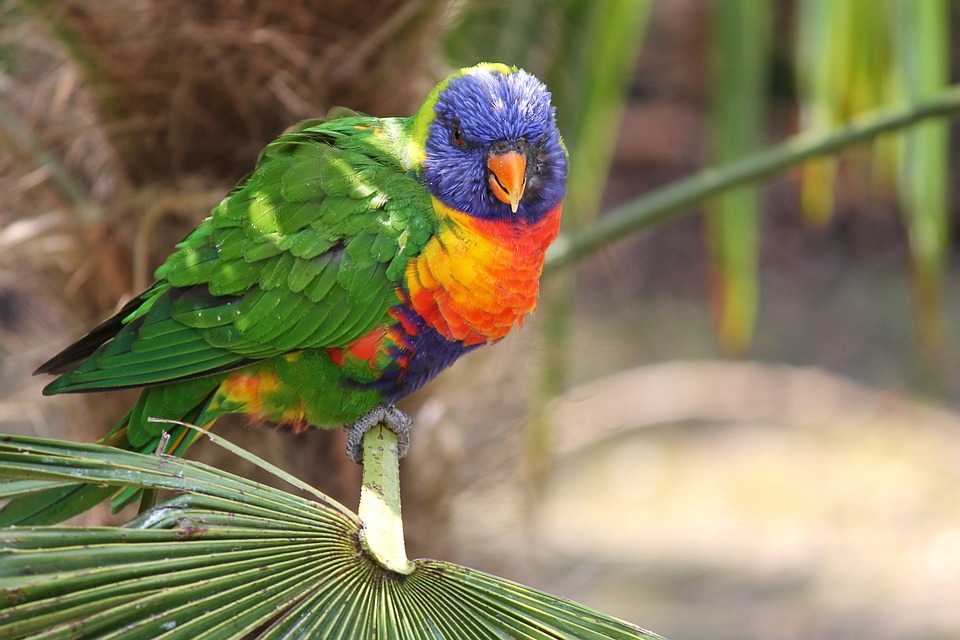Parrots are known for their ability to mimic sounds, and one particular sound they often imitate is the squeak of a door. Understanding parrot behavior, especially their mimicry skills, can be quite challenging. In this article, we will explore the fascinating world of parrot behavior and focus on their ability to mimic door squeaks. We will also answer some frequently asked questions to provide a comprehensive understanding of these captivating avian companions.
Parrots are incredibly social creatures with a strong flock mentality. They thrive in environments where they can interact with their human companions and other parrots. Their vocal communication plays a crucial role in their social interactions, and mimicry is a significant aspect of their communication repertoire.
Mimicry is a natural behavior for parrots, as it allows them to blend in with their surroundings and communicate with other members of their flock. They have the remarkable ability to imitate a wide range of sounds, including human speech, animal noises, and even mechanical sounds like door squeaks.
So why do parrots mimic door squeaks specifically? One reason is that parrots are highly observant creatures. They pay close attention to their environment and pick up on various sounds, including those produced by doors. Their ability to mimic these sounds is a form of environmental enrichment and mental stimulation.
Understanding the motivation behind mimicry is crucial to decoding parrot behavior. Parrots mimic door squeaks to seek attention, as it often elicits a response from their human companions. Mimicking this sound allows them to engage with their owners and maintain social interactions.
Reinforcement also plays a role in parrot mimicry. If a parrot mimics a door squeak and receives positive reinforcement, such as attention or treats, they are likely to continue replicating the sound. This reinforcement strengthens the behavior and encourages the parrot to mimic the door squeak more frequently.
So what does door squeak mimicry mean in terms of parrot behavior? Firstly, it is often an attention-seeking behavior. Parrots enjoy the interaction and response they receive from their human companions when they mimic door squeaks.
Associative learning and environmental cues also play a role in door squeak mimicry. Parrots may associate the sound of a door opening or closing with certain actions or events, such as the arrival of their owners or the opportunity to explore outside their cages. By mimicking the sound, they are expressing their desire for these activities.
Door squeak mimicry can also be a form of emotional expression and bonding. Parrots may mimic the sound as a way to bond with their human companions or express their excitement or anticipation.
Now, let’s address some frequently asked questions about parrot behavior and door squeak mimicry.
1. Can all parrot species mimic door squeaks?
While many parrot species have the ability to mimic door squeaks, some may be more adept at it than others. African Grey Parrots, for example, are known for their exceptional mimicry skills and may be more likely to imitate this sound.
2. How can I discourage my parrot from mimicking door squeaks excessively?
If you find your parrot mimicking door squeaks excessively, it is essential to provide them with alternative forms of mental stimulation and enrichment. Offer them a variety of toys, puzzles, and other interactive activities to keep their minds engaged.
3. Are parrots mimicking door squeaks a sign of distress or unhappiness?
In most cases, parrots mimicking door squeaks are not a sign of distress or unhappiness. It is a natural behavior for them and often done to seek attention or engage with their owners. However, if you notice any other concerning behaviors or changes in your parrot’s demeanor, it is always best to consult with a veterinarian.
4. Is it possible to teach a parrot specific sounds to mimic, such as a doorbell?
Yes, it is possible to teach a parrot specific sounds to mimic, including a doorbell. Parrots are highly intelligent and can learn new sounds through training and positive reinforcement. Consistency, patience, and reward-based training methods are key.
5. Should I be concerned if my parrot suddenly stops mimicking door squeaks?
If your parrot suddenly stops mimicking door squeaks or any other sounds they used to imitate, it could be a sign of a health issue or a change in their environment. It is best to observe their behavior closely and consult with a veterinarian if you have any concerns.
In conclusion, parrots are fascinating creatures with a remarkable ability to mimic sounds, including door squeaks. Understanding their behavior and the meaning behind their mimicry is essential for providing them with a stimulating and enriching environment. By decoding their behavior, we can strengthen our bond with these intelligent and captivating feathered friends. Remember, patience, positive reinforcement, and a deep understanding of parrot behavior are key to nurturing a happy and healthy parrot.









